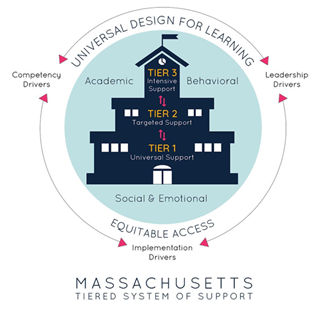TESTS RELATED TO MATHEMATICS
/Mathematics, like reading, is one of the foundational school subjects and skills that we expect our students to master. Not only are students expected to be able to read and understand the vocabulary associated with mathematics; but they need to learn to count, write numbers and mathematical symbols and apply all this information into solving mathematical equations.
Many students with special needs encounter difficulty in their attempts to learn the basic skills of mathematics. Although mathematics is not found across the student’s daily curriculum, it is a part of their daily life. Individuals are expected to be able to tell time, count out money to pay for their groceries or to ride the bus; and to budget their money to pay their bills from rent to phone charges.
When a student’s math skills are being assessed there should be three guiding questions: “What are the student’s educational needs?”; “What is the student’s current level of mathematical achievement?”; and “What are the student’s strengths and weaknesses in the various skill areas of mathematics?”
INFORMAL ASSESSMENT
Classroom teachers are frequently monitoring and testing the student’s mathematical skills via informal tools. Many of the tools are curriculum based (i.e. homework, quizzes and tests) but can also include teacher checklists, error analysis, inventories, questionnaires, interviews and portfolio assessments. This article is going to discuss just a few of these tools more in-depth.
Teacher checklists are probably the most efficient method for gathering information on a daily basis. The checklist is tailor made for the student and their needs. It can be general and survey a wide range of mathematical skills and knowledge. It can also be very specific and narrow, focusing on just a few skills. You can search the internet for examples of checklists if you would like to see an example.
Another tool that you may recognize without realizing it is an inventory. The teacher can create a worksheet of problems that focus on a specific skill or area of interest. For example, the student can be given a worksheet of only simple multiplication problems or clock faces that ask the student to identify the time depicted. Inventories are fast to make and are a great way to quickly identify a student’s strength and weakness while providing practice and feedback.
FORMAL ASSESSMENT
A math assessment provides a sample of skills, it does test everything your child may know. Any assessment of mathematical skills should consist of a norm-referenced test (i.e. a test that compares a student’s performance to that of the students in the norm group) as well as criterion-referenced test (i.e. a test that compares a student’s performance to the curriculum frameworks) as a supplement.
There are many formal assessments that can be used to asses a student’s mathematical skills including: Key Math, Comprehensive Mathematical Abilities Test and Wechsler Individual Achievement Test. These are not the only formal assessments available and this article only provides a very high-level explanation of a few of them.
Before you read any report generated, you should familiarize yourself with the term dyscalculia. Dyscalculia is a specific learning disability in math reasoning/calculation. This term is often used by professionals in their reports when discussing a student’s difficulties with mathematics.
Key Math. This test assesses the basic concepts (conceptual knowledge), operations (computations skills) and applications (problem solving) in mathematics. This test may be administered to students aged 4 ½ to 21 years of age. Reading skills are not needed, because the tester reads all questions and problems to the student. Although, it may be used with high school students, this test does not measure higher-level math skills and may provide inflated scores for older students.
Comprehensive Mathematical Abilities Test (CMAT). This test is most often used to measure math reasoning, calculations and applications. The CMAT has six main subtests: Addition, Subtraction, Multiplication, Division, Problem Solving and Charts/Graphs and six subtests: Algebra, Geometry, Rational Numbers, Time, Money and Measurement. In most evaluations, only the six main subtests are administered. The student is allowed to use a calculator in all of the tests that do not assess computation skills. If a calculator is used, the evaluator is supposed to document its use. This test does not assess math fluency.
WHAT CAN YOU DO TO HELP?
When a student has math difficulties or math disability, they need to receive explicit instruction in math computation and word problems. They should also be given opportunities to practice their math skills and receive feedback. Allow your child to count out and pay the cashier when you go food shopping, etc. Set up a chore chart where your child can earn money but they also need to budget that money to pay for things they want and/or want to do. In today’s world, good jobs often require basic math skills and computing skills. By ensuring that they master math skills, you are improving your student’s options for further education, employment and independent living.
Have questions or concerns about your student? Contact us to discuss further:
E.M. Curran & Associates LLC
10 Tower Office Park
Suite 406
Woburn, MA 01801
Phone: 781-933-1542
Fax: 781-933-1549
ellen@emcurranlegal.com






























